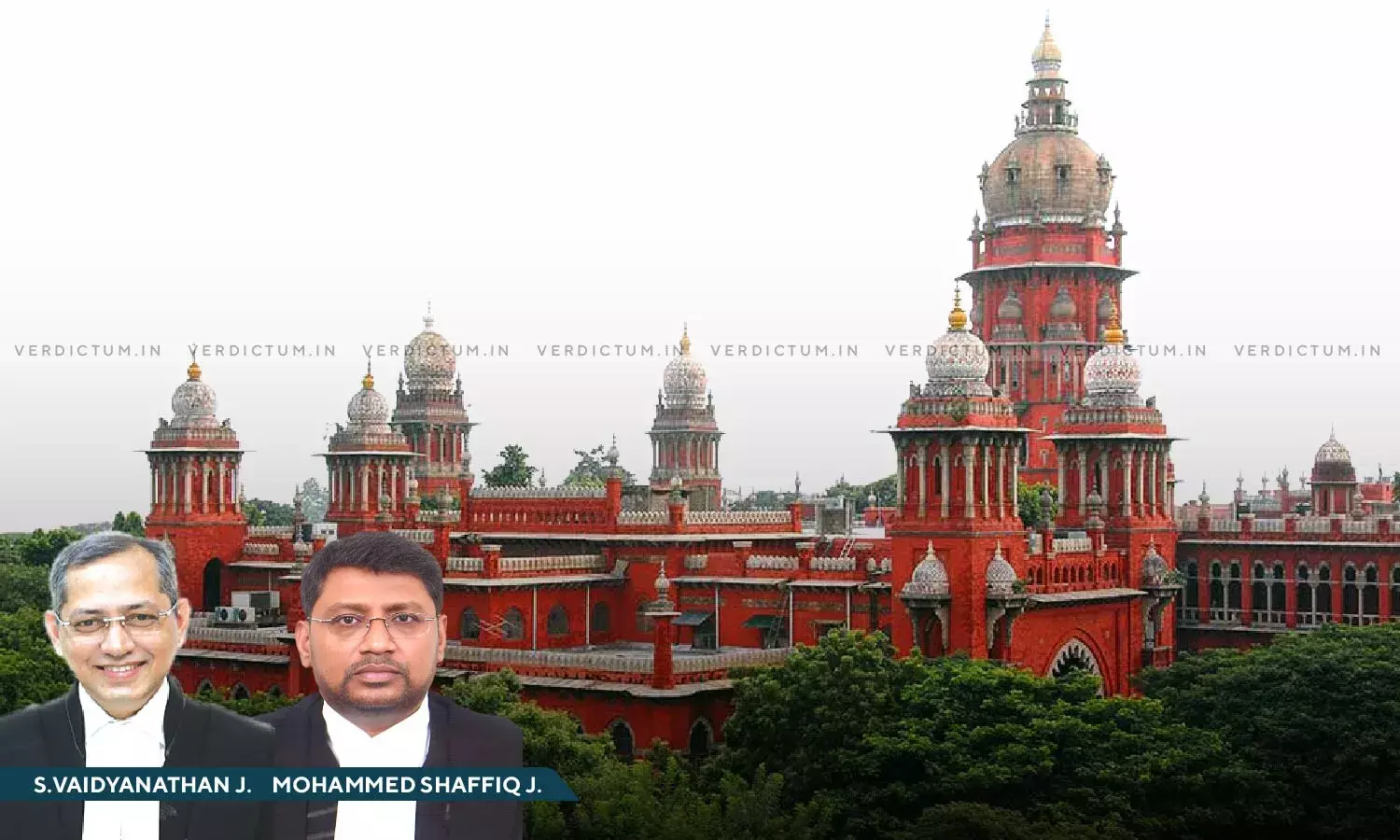Can't Deny Maternity Benefits On Technicalities, Woman Isn’t Pendulum Forced To Swing Between Motherhood & Employment: Madras HC
The Madras High Court while pronouncing a verdict in favour of a woman under the Maternity Benefit Act held that maternity benefits cannot be deprived on mere interpretation and technicalities.
The Court said that a woman cannot be forced to swing between motherhood and employment as the maternity benefit relates to her dignity.
A Division Bench comprising Justice S. Vaidyanathan and Justice Mohammed Shaffiq asserted, “… the benefits cannot be deprived on mere interpretation and technicalities, as interpretation of law should be liberal to ensure marching towards enforcement and it should not defeat the very purpose of welfare scheme. A woman is not a pendulum and cannot be forced to swing between motherhood and employment, as the maternity benefit relates to the dignity of a woman. In Hindu mythology, women, who respect elders and sacrifice their life for the welfare of the husband's family, are portrayed as equal or even greater than men and are regarded as equivalent to God.”
The Bench further held that act of the employer/appellants in depriving the maternity leave and other benefits to the respondent/woman is ex facie bad in law and its order has no legs to stand and should vanish.
Advocate T. Chandrasekaran appeared for the appellants while Advocate P. Paramasivadoss represented the respondent.
Facts –
The respondent in this case was selected and appointed as an Assistant Engineer through Employment Exchange in the Tamil Nadu State Transport Corporation i.e., the appellant and was subjected to undergo the mandate training period. Since she was married even prior to the date of appointment and was carrying a foetus in the womb, she was unable to continue her training session, which resulted in a break-up and hence applied for the maternity leave from March 19, 2014 to July 19, 2014 and July 20, 2014 to September 14, 2014.
The appellant granted leave to the respondent but refused to treat her leave with full pay and benefits. When the decision of the appellant was questioned, the Single Judge not only directed the employer to treat the leave period as duty period, but also extended all the service and monetary benefits applicable for the said period. Challenging the order of the Single Judge as contrary to law, the appellant was therefore before the High Court.
The High Court after considering all the facts and circumstances of the case, observed, “The narrow interpretation given by the employer that the employee must have actually worked for 160 days for a period of 12 months cannot be accepted, as it would suffice, if the employee completed 160 days even in a period of less than 12 months, which means that it is not necessary that the employee should be on the roll for actual 12 months and completed 160 days in that 12 months.”
The Court further noted that the Courts must be cautious that the non-compliance will not have the effect of nullifying the benefit and that the Courts should not be a party to such acts.
“The core theory of interpretation rests on its harmonious and balanced reading, as otherwise it will undermine / defeat the purpose of the Statute itself. It is to be remembered that birth of a baby is rebirth of a mother and if a woman is not properly taken care during the period of pregnancy and after delivery, it will certainly affect two lives, namely, mother and new borns. Though both Central and State Governments have been liberally implementing various schemes for the welfare and upliftment of women, the Authorities concerned shall stand in its way from reaching the hands of women for some extraneous consideration”, the Court said.
It was also observed by the Court that the mental agony and pain undergone by a woman during the pregnancy period would no longer be seen on the face of a woman after giving birth to a baby.
The Court also referred to the maternity benefits provided by the neighbouring and other countries such as China, Pakistan, Singapore, Australia, etc.
The Court while mentioning Dr. A.P.J. Abdul Kalam said, “… Former President of India, who dreamt of a developed India, once said that the future of our Country is in the hands of children and wanted to make children grow in a hale and healthy manner and make the education reachable and flexible to them. If they are not protected in the womb in a healthy atmosphere by way of proper care to the mother, the dream of our Former President will only be a mirage.”
The Court, therefore, refused to interfere with the order passed by the Single Judge and directed the appellants to comply with such order within a period of four months failing which they would be liable to pay a cost of Rs. 50,000/-.
Accordingly, the Court dismissed the writ appeal.
Cause Title- Tamil Nadu State Transport Corporation (Coimbatore) Ltd. & Anr v. B. Rajeshwari
Click here to read/download the Order




